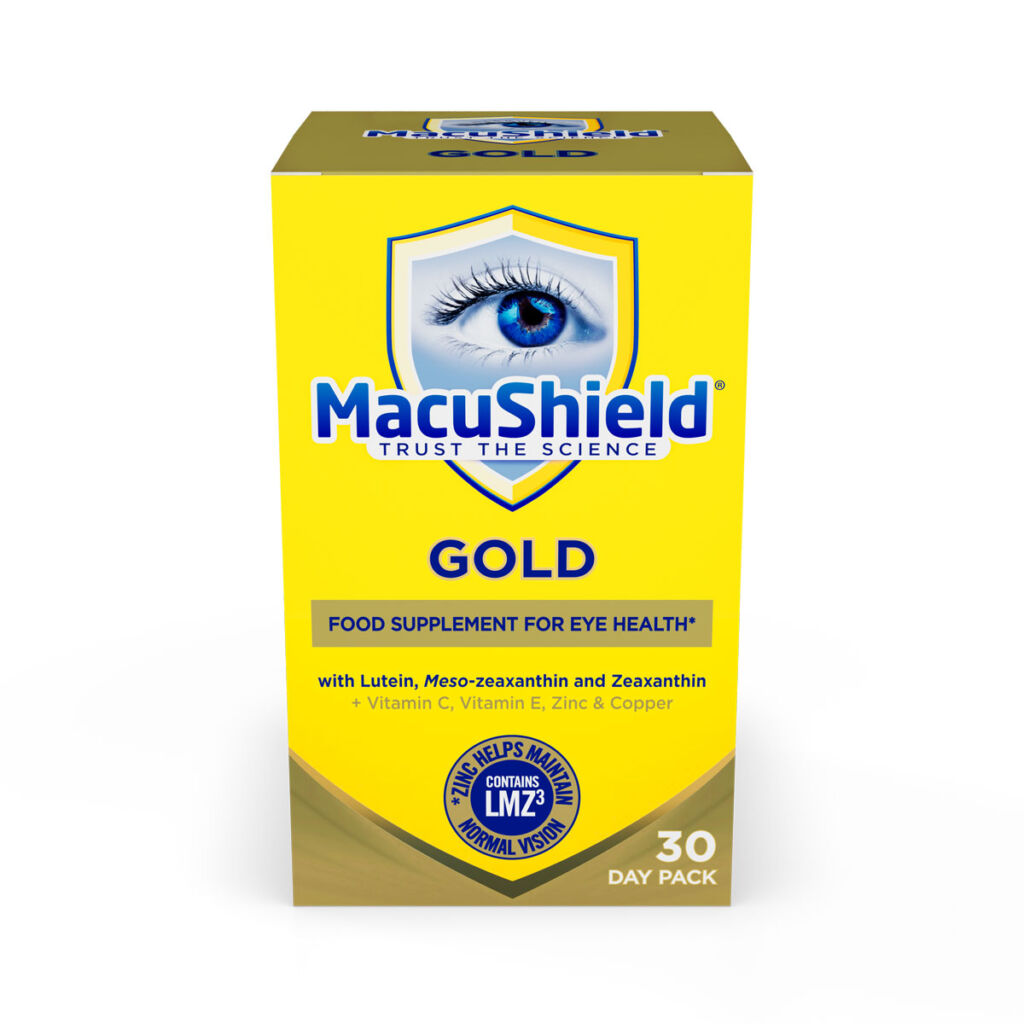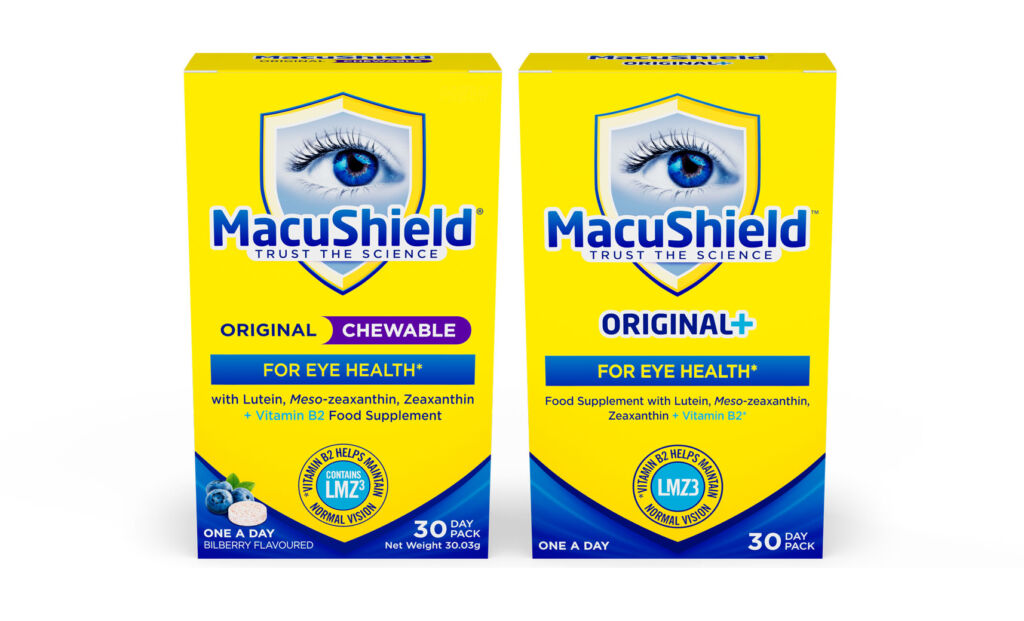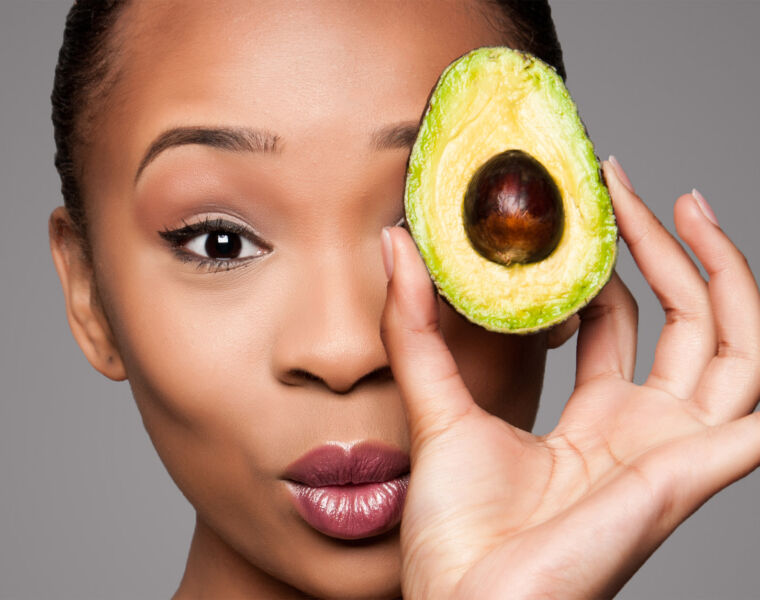
Whether we are following recipes to prepare delicious meals for the family, taking in the summer blooms in all their colourful glory, or getting swept up in a new novel, our eyes are essential to enjoying life.
In its World Report on vision,[1] the World Health Organization (WHO) highlighted just how important our eyesight is at every stage of life, it being the most dominant of our senses. We need it to recognise and bond with our mother from birth, just as we need it to maintain our independence as we reach our later years.
Worryingly, the WHO report predicted a dramatic increase in the need for eye care in the coming decades, placing significant challenges on healthcare systems. While it was a call to action for countries to address these challenges, there is also a lot we can do to help ourselves when it comes to what we put into our bodies.
A Feast for the Eyes
Good nutrition goes hand-in-hand with overall health and well-being, but certain nutrients play a specific role in the eye. One range of supplements – MacuShield[2] – stands out for its carefully selected nutrients and formulation developed with leading eye health experts.[3]
Dr Emma Derbyshire, advisor to MacuShield – makers of the UK’s leading eye health supplement range[4], says, “All of the products in the MacuShield2 range contain all three macular carotenoids: lutein (10 mg), zeaxanthin (10 mg), and meso-zeaxanthin (2 mg) by way of the brand’s signature LMZ3 nutrient blend. Developed in collaboration with eye health experts, MacuShield’s formulas contain macular carotenoids sourced from marigolds (Tagetes erecta) grown specifically for this purpose.”
The importance of macular carotenoids
Located at the back of the eye, the retina is responsible for detailed vision at the centre of the eye-line. The macula is the most sensitive part of the retina, providing the sharp central vision that is vital to our ability to read and drive – activities that are essential for our ability to live the life we love.

“The body naturally deposits the three macular carotenoids at the macula,” says Dr Emma Derbyshire (right), who goes on to say, “These carotenoids form the macular pigment, which appears as a yellow spot at the back of the eye. We cannot make all of the macular carotenoids the body needs, so we need to take them in from outside, such as through our food or supplementation.”
Lutein and zeaxanthin can be found in brightly coloured fruits and vegetables, such as peppers and sweetcorn, and leafy greens, such as spinach and kale, while meso-zeaxanthin can be found in some fish and seafood, such as trout and shrimp.
However, as can be seen from the various iterations of the government’s National Diet and Nutrition Surveys (NDNS),[5] we do not always manage to achieve our optimal nutrient intakes from food. For example, only a third (33%) of adults aged 19 to 64 are achieving their 5-A-Day of fruit and vegetables.
B2 or not B2
Besides the LMZ3 macular carotenoids, MacuShield’s[6] Original+ contains vitamin B2 (0.3 mg), also known as riboflavin which supports eye health, while MacuShield’s Gold Formula contains Zinc to maintain normal vision. Catering to varying needs, the one-a-day formula also comes in a vegetarian capsule, as well as in a chewable blueberry tablet format.
Dr Emma Derbyshire continues, “Importantly, the vitamin B2 in the Original+ 5 equates to 21% of the nutrient reference value (1.4mg),[7] and the Great Britain nutrition and health claims (NHC) register officially recognises that riboflavin (vitamin B2) contributes to the maintenance of normal vision.” [8]
Yet, according to the latest iteration of the NDNS, UK adult dietary intakes of vitamin B2 are not always high enough to meet our nutritional needs. For example, one in eight (13%) women aged 19 to 64 years are not getting enough in their diet to meet the lower reference nutrient intake (LRNI) for vitamin B2, compared to one in 25 (4%) men in the same age group. The vitamin B2 LRNIs are 0.8 mcg/d for both men and women in this age group.
The LRNI is the amount of a nutrient that 2.5% of the population with the lowest requirements need to take in to maintain health and is far too little to meet the needs of most people.
Seeing what matters through our golden years
MacuShield also recognises the changing nutrient needs of individuals as they progress through adulthood. Therefore, MacuShield Gold[9] – their most advanced formula – contains additional vitamins and minerals to help support eye health alongside their LMZ3 carotenoids in a three-a-day softshell capsule format.

MacuShield Gold8 contains vitamin C (500mg), vitamin E (268mg), Zinc (25mg), and copper (2mg). This equates to more than 30% of the NRV for vitamin C (24mg), as published in the European Commission Directive 2008/100/EC. According to the latest NHC, vitamin C, vitamin E, and copper, each contribute to the protection of cells from oxidative stress, while Zinc contributes to the maintenance of normal vision.
We all lead busy lives, and it can be hard to ensure we are getting all the nutrients we need to maintain health as we age. For example, the NDNS also shows that we are not always achieving the recommended nutrient intakes of Zinc, a nutrient found in high concentrations in the retina. Indeed, among 19- to 64-year-olds, 6% of men and 7% of women are failing to meet the LRNI for Zinc (5.5 mg/d for men and 4.0 mg/d for women).
“It is time to take action on our nutrient shortfalls because our eye health and our overall health are essential to our ability to enjoy life to the full”, says Dr Emma Derbyshire, adding, “Our eyes keep us connected to what we love, so we need to nourish them appropriately.”

The MacuShield range[10] of products can help us to look out for what we love.
References:
- [1] https://www.who.int/publications/i/item/9789241516570
- [2] MacuShield Original+, Chewable and Original+ Vegetarian contain vitamin B2, which helps to maintain normal vision. MacuShield Gold contains Zinc, which helps to maintain normal vision.
- [3] MacuShield Original+, Chewable and Original+ Vegetarian contain vitamin B2, which helps to maintain normal vision. MacuShield Gold contains Zinc, which helps to maintain normal vision.
- UK No.1 eye health supplement based on sales volume. To verify, email [email protected]
- [4] UK No.1 eye health supplement based on sales volume. To verify, email [email protected].
- MacuShield Original+, Chewable and Original+ Vegetarian contain vitamin B2, which helps to maintain normal vision. MacuShield Gold contains Zinc, which helps to maintain normal vision.
- [5] https://www.gov.uk/government/statistics/ndns-results-from-years-9-to-11-2016-to-2017-and-2018-to-2019
- [6] MacuShield Original+, Chewable and Original+ Vegetarian contain vitamin B2, which helps to maintain normal vision.
- [8] https://www.gov.uk/government/publications/great-britain-nutrition-and-health-claims-nhc-register
- [9] MacuShield Gold contains Zinc, which helps to maintain normal vision
- [10] MacuShield Original+, Chewable and Original+ Vegetarian contain vitamin B2, which helps to maintain normal vision. MacuShield Gold contains Zinc, which helps to maintain normal vision.
Read more health guides, news, research and features here.
![]()




You must be logged in to post a comment.